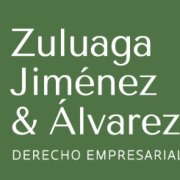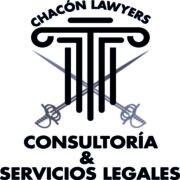Best Renewable & Alternative Energy Lawyers in Bogota
Share your needs with us, get contacted by law firms.
Free. Takes 2 min.
List of the best lawyers in Bogota, Colombia
About Renewable & Alternative Energy Law in Bogota, Colombia
Renewable and alternative energy law in Bogota, Colombia, addresses the legal framework governing the development, regulation, and use of renewable energy sources such as solar, wind, biomass, and hydropower. As part of Colombia’s commitment to sustainability and climate change mitigation, the country has implemented numerous policies to encourage cleaner, more sustainable energy production and consumption. Bogota, as the capital and a major urban center, is at the forefront of these initiatives, supporting clean energy projects and innovations related to renewable power. The laws in this field aim to balance economic growth with environmental protection, creating opportunities and responsibilities for individuals, businesses, and government entities involved in the sector.
Why You May Need a Lawyer
Legal advice can be crucial when navigating the complex renewable and alternative energy landscape in Bogota. Here are some common situations where individuals or businesses may require legal help:
- Starting a renewable energy project, such as a solar or wind farm, which involves permitting, land use, and regulatory compliance.
- Complying with environmental regulations and ensuring proper licensing for energy generation or distribution.
- Resolving disputes involving property rights, community impacts, or contracts related to energy projects.
- Negotiating power purchase agreements or other commercial contracts with utilities or government entities.
- Understanding tax incentives, subsidies, or government support programs available for renewable energy investments.
- Addressing intellectual property matters related to innovative energy technologies.
- Dealing with potential challenges or opposition from local communities or interest groups.
A qualified lawyer can guide you through these processes, helping you avoid costly mistakes and ensuring compliance with all applicable laws.
Local Laws Overview
Colombia has a robust regulatory structure supporting renewable and alternative energy, made clear in various national laws and policies that are also enforced in Bogota. Key aspects include:
- Law 1715 of 2014: This foundational law promotes the integration of non-conventional renewable energy into the national energy system. It provides guidelines on incentives, permits, and support for renewable projects.
- Net Metering and Distributed Generation: Regulations allow individuals and businesses to generate their own clean energy and supply excess electricity back to the grid, offsetting their energy bills.
- Environmental Permitting: Projects must comply with environmental assessments, managed by the Autoridad Nacional de Licencias Ambientales (ANLA), to ensure sustainability and community safety.
- Tax Incentives: There are tax exemptions and incentives for investments in renewable energy technologies, including reduced import duties and value-added tax benefits.
- Bogota’s Local Policies: The city has specific programs to encourage clean energy use in households, public service vehicles, and businesses, often going beyond national requirements.
Navigating these laws requires an understanding of both national statutes and local ordinances, often involving several governmental agencies and regulatory bodies.
Frequently Asked Questions
What is considered renewable and alternative energy in Bogota?
Renewable and alternative energy includes sources like solar, wind, biomass, geothermal, and small-scale hydropower that do not rely on fossil fuels and have lower environmental impact.
How do I start a renewable energy project in Bogota?
You must comply with national and local permitting requirements, including land use approvals, environmental assessments, and registration with energy authorities. A lawyer can help streamline this process.
What incentives are available for renewable energy investments?
Incentives can include tax exemptions, deductions for equipment investments, and access to government support programs for clean energy generation.
Are there restrictions on installing solar panels at home?
You may need local permits, especially for larger installations or where historic or community regulations apply. Compliance with safety codes is also required.
Can I sell excess electricity from my project back to the grid?
Yes, net metering regulations allow eligible users to supply their surplus renewable energy to the public grid and receive credits or compensation.
What environmental regulations do I need to consider?
Projects may require environmental licenses, especially if large scale. This process involves environmental impact assessments and ongoing compliance.
How are renewable energy contracts regulated?
Contracts, including power purchase agreements, must comply with Colombian commercial law and specific rules governing energy supply and distribution.
What challenges might I face in renewable energy development?
Common issues include bureaucratic delays, opposition from local communities, changing regulations, and securing financing or technical expertise.
Can communities access renewable energy funding programs?
Yes, specific government and international programs offer funding and technical assistance for community-led renewable projects.
Where can I report or resolve disputes related to renewable energy?
Disputes may be resolved through regulatory agencies, administrative hearings, or the Colombian courts, with legal assistance recommended for best results.
Additional Resources
If you are seeking more information or support related to renewable and alternative energy in Bogota, consider the following organizations and governmental bodies:
- Ministerio de Minas y Energía - Oversees national energy policy and renewable initiatives.
- Unidad de Planeación Minero Energética (UPME) - Responsible for energy sector planning and policy implementation.
- Autoridad Nacional de Licencias Ambientales (ANLA) - Manages environmental permitting and compliance.
- Alcaldía de Bogotá - Local authority for city policies, including municipal renewable energy projects.
- Asociación de Energías Renovables - Supports industry stakeholders and provides information on best practices.
- Chambers of Commerce - Offers programs and support for business development in the energy sector.
These resources can provide valuable guidance, official forms, and up-to-date information on relevant regulations and opportunities.
Next Steps
If you need legal assistance related to renewable and alternative energy in Bogota, Colombia, consider the following approach:
- Identify your legal needs - whether it is project development, regulatory compliance, dispute resolution, or contract negotiation.
- Gather all relevant documents, such as permits, contracts, and correspondence with authorities.
- Consult a lawyer specializing in renewable energy law, preferably with experience in Bogota’s regulatory environment.
- Develop a clear action plan with your lawyer, including timelines, legal strategies, and potential risks to address.
- Stay informed about any changes to laws or policies that may affect your project or interests.
By seeking timely legal advice and working with knowledgeable professionals, you can take advantage of Colombia’s supportive environment for renewable and alternative energy while minimizing risks and ensuring compliance every step of the way.
Lawzana helps you find the best lawyers and law firms in Bogota through a curated and pre-screened list of qualified legal professionals. Our platform offers rankings and detailed profiles of attorneys and law firms, allowing you to compare based on practice areas, including Renewable & Alternative Energy, experience, and client feedback.
Each profile includes a description of the firm's areas of practice, client reviews, team members and partners, year of establishment, spoken languages, office locations, contact information, social media presence, and any published articles or resources. Most firms on our platform speak English and are experienced in both local and international legal matters.
Get a quote from top-rated law firms in Bogota, Colombia — quickly, securely, and without unnecessary hassle.
Disclaimer:
The information provided on this page is for general informational purposes only and does not constitute legal advice. While we strive to ensure the accuracy and relevance of the content, legal information may change over time, and interpretations of the law can vary. You should always consult with a qualified legal professional for advice specific to your situation.
We disclaim all liability for actions taken or not taken based on the content of this page. If you believe any information is incorrect or outdated, please contact us, and we will review and update it where appropriate.













